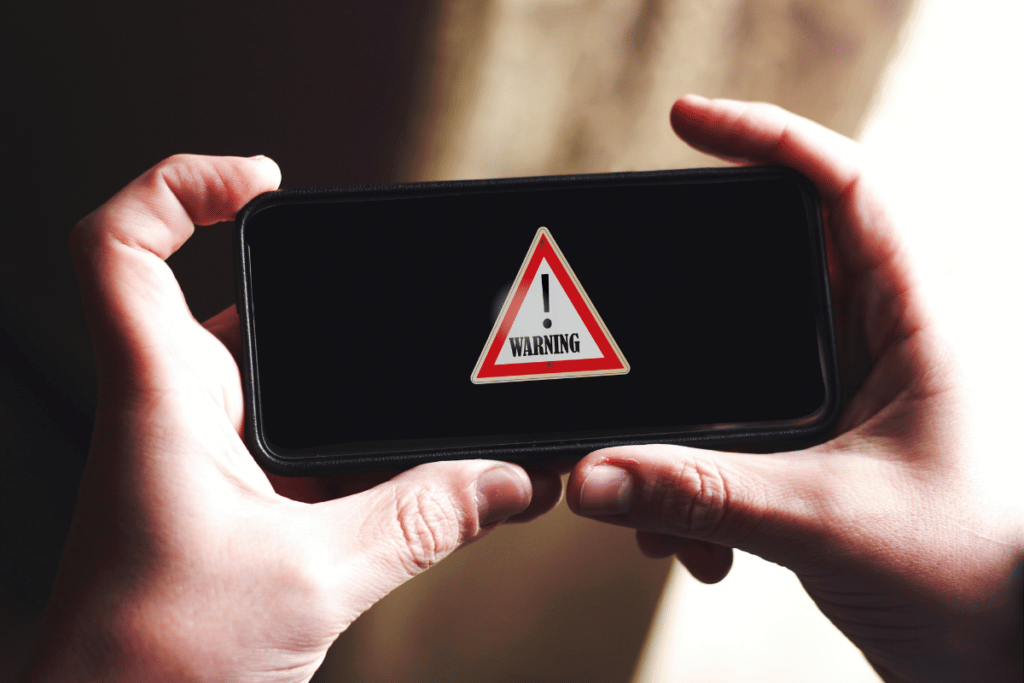Social Media School Threats
Students throughout the country have used social media to threaten public schools, resulting in school closures, lockdowns, and other disruptions. According to the Washington Post, these types of threats seem to spike in the aftermath of school shootings.
 Written and edited by our team of expert legal content writers and reviewed and approved by Attorney Matthew Bergman
Written and edited by our team of expert legal content writers and reviewed and approved by Attorney Matthew Bergman
- Content last updated on:
- October 2, 2025
Written and edited by our team of expert legal content writers and reviewed and approved by

- Content last updated on:
- October 2, 2025
An EdWeek Research Center survey found that the prevalence of student threats of violence has risen markedly in school districts where student learning was remote or hybrid, with 51 percent of principals and leaders reporting such threats after students returned to in-person learning, an increase from 30 percent prior to the pandemic.

School Shooting Threats on Social Media
The primary challenge schools face when managing threats is balancing the need for continuity in education with the safety of students and faculty. Every threat must be taken seriously, but the school is also faced with the task of determining which threats are credible.
Closing schools for every threat also rewards perpetrators with attention or a desired school closure. This could incentivize other attention-seeking individuals to threaten the schools.
TikTok Threat to Schools
In December 2021, schools across the nation received school shooting threats and bomb threats that originated on TikTok and spread across other platforms, a Bloomberg news report stated. While a date was specified, many of the threats did not name a school.
Schools across the country responded in different ways to these threats. Some closed or switched to virtual learning on the dates in question, while others kept school in session under lockdown.
This rash of threats came about as part of a disturbing TikTok challenge trend. In another challenge, TikTokers were encouraged to slap their teachers. A third challenge, known as “devious licks,” enticed students to vandalize school bathrooms or steal school equipment.
These challenges illustrate how easily posts on TikTok can go viral and result in nationwide consequences.
Daily Threats Against Schools
The New York Times reported a string of threats against more than a dozen New York City schools from an obscure social media site called Omegle. These threats were more specific, naming the schools, a hit list of students at each school, and the type of assault rifle that would be used. They even mentioned what music the shooter would play.
At least nine schools outside New York City were also targeted, including a school in Long Beach, California. Authorities believe the perpetrator may be overseas and using Instagram to gather the names of schools and individuals to list in the threats.
How Facebook Enables Threats of Violence
Facebook uses algorithms that are known to promote violent and inciting content, and despite claims to the contrary, Facebook rarely filters it out. This is because Facebook relies on violent content to bolster its audience and increase profits. The algorithm allows blatantly racist content, including advocating white supremacy, to be displayed.
This type of algorithm is not unique to Facebook. The company that owns Facebook, Meta, also owns Instagram, which uses a similar algorithm.
Facebook is so ineffective at policing violent content on its platform that the graphic video of the racially motivated Buffalo, New York, mass shooting, which was livestreamed by the shooter, has made its way onto the platform and continued to spread despite users reporting it. When users reported it, they received a message stating the video did not violate Facebook’s terms of service.
This type of content fosters an aggressive environment and could give young people the impression that violent statements and threats are permissible on social media. Unfortunately, this is an issue across social media platforms, not just Facebook.
Is it a crime to threaten a school on social media?
Although young people who make these threats try to pass them off as pranks, they are not harmless, and the authorities always take them seriously. According to the FBI, threatening a school on social media is a federal crime, which could carry a penalty of up to five years in prison, and state charges may apply.
Threats against a public school are not only felonies but, in some jurisdictions, they are considered a form of domestic terrorism. One impulsive post that takes 10 seconds to make can destroy a young person’s future, regardless of the individual’s age.
In light of this, it is vitally important for parents to talk to their children about the consequences of saying anything on social media that could be construed as a threat against a school.
What’s considered a threat on social media?
According to the FBI, a threat is any communication of intent to commit an act of violence. A threat can be written, spoken, or symbolic. This includes comments that imply or directly state you intend to use guns, weapons, or any other means to cause harm at a public school, even if the statement is meant as a joke or a prank.
Children as young as 13 years old are being arrested for threatening comments on social media, regardless of whether they were intended as a threat. These children are being charged with felonies and beginning their adult lives in prison or with a record.

School Shootings with Warnings on Social Media
Many school shooters have exhibited warning signs that were missed prior to the attacks, including threats on social media. For example, the school shooter at Sante Fe High School in Texas had a Facebook page with images of a custom T-Shirt that said “Born to Kill” and a black jacket that contained symbols related to Nazism, communism, and fascism.
The school shooter at Oxford High School in Michigan made multiple threats over social media before the shooting and posted a direct threat on his Twitter bio. The Marjory Stoneman Douglas High School shooter in Parkland, Florida, also posted disturbing messages on social media prior to the shooting.
The Robb Elementary School shooter in Uvalde, Texas, had conversations on Facebook Messenger and in an Instagram chat about the shooting before the incident.
In all these cases, the social media platforms failed to flag accounts, remove posts, or notify authorities. Instead, they aided and abetted the shootings by providing the shooters with audiences.
Could social media platforms prevent school shootings?
The Washington Post reported the results of a Secret Service study, which revealed that 77 percent of school shooters revealed their plans to others prior to the event.
Social media apps have some of the most advanced technology in the world to screen user content, as evidenced by their fact-checking software that screens posts for misinformation about selected topics.
Virtually every mainstream social media app also provides users with the ability to report content that violates its terms of service, including violent content. However, the use of bots instead of humans to screen these reports causes the platforms to incorrectly allow the content to remain.
Social media apps have the ability to monitor internet activity for marketing purposes. Your internet activity tells so much about you that many users mistakenly believe their phones are listening to their conversations.
Social media platforms can screen user content when it suits their purposes. They could also display posts that promote positivity and equality. These approaches may reduce profits, but without safeguards in place, public safety is compromised. It is time for these platforms to start prioritizing public safety over profits.
With their existing technology, social media platforms could prevent some school shootings via the following means:
- Changing their algorithm to prioritize content that is not violent or provocative
- Adopting a screening system that would remove illegal and violent content, including threats, without displaying it—this must apply to private messaging apps as well—to prevent:
- Violent actors from building an audience
- Extremist groups from networking and coordinating violent attacks
- Alerting the authorities when illegal content is detected or when user activities raise red flags
These measures could prevent school shootings as well as other forms of violence. However, social media platforms will never accept responsibility until forced to do so through litigation.
Our attorneys at the Social Media Victims Law Center are committed to helping victims of social media violence hold these companies accountable in our pursuit of change. If you or your child can attribute harm to social media, we want to hear from you. Contact us today to schedule a free consultation.
Frequently Asked Questions
For individuals and children who have been
We only handle cases on a contingent fee basis. This means that we are paid a portion of any recovery obtained in the case and you do not owe us any attorneys’ fees if the lawsuit does not result in a recovery.
Every case is unique. Our attorneys will work with your family to evaluate your potential case and help you evaluate whether filing a lawsuit or other legal proceeding is in your family’s best interest. Generally speaking, the types of cases we handle involve serious mental health effects, including attempted or completed suicide, eating disorders, inpatient mental health treatment, or sexual trafficking/exploitation that was caused by or contributed to through addictive or problematic social media use by teens and young adults.
We are a law firm based near Seattle, WA comprised of lawyers who have spent their entire careers representing victims who have been harmed by dangerous products. We are also parents. Shocked and troubled by the recent revelations about the harm caused to teens and young adults by social media platforms, which powerful technology companies have designed to be highly addictive, Social Media Victims Law Center was launched specifically to help families and children who have suffered serious mental harm or exploitation through social media use to obtain justice.
Contact Us Today
Related Pages
Client Testimonials
Explore Popular Topics

Addiction

Suicide

Eating Disorders

Anxiety

Bullying

Sexual Abuse

Body Image

